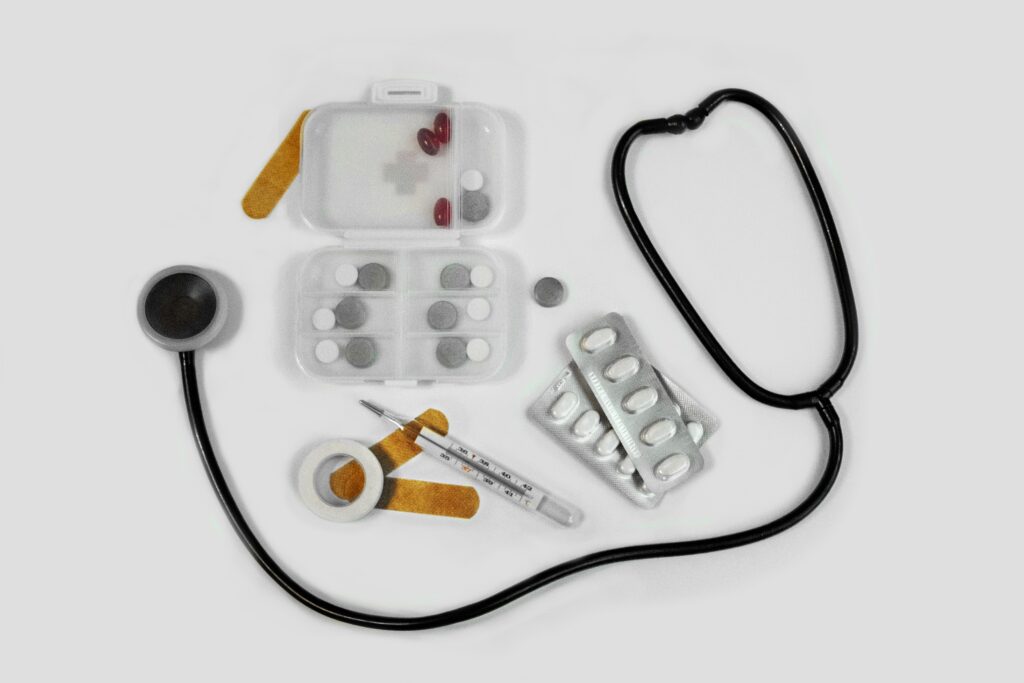To get the best start with a clinical trial, we carry out a site initiation visit (SIV). In this post, we look at what that entails and how we ensure it sets the trial off in a positive direction.
When setting up a clinical trial, there are many steps to take, both on the approval side and the logistics side. At certain points in the process, the Clinical Research Associate (CRA) working on the trial is on the ground, visiting sites and talking to the people who will be running the study. One of these points is the site initiation visit (SIV).
The SIV happens once a site has been chosen for a clinical trial and received IRB approval, and when a Clinical Trial Agreement is in place. The aim is to make sure a site is ready to start enrolling participants. To do this, the CRA carries out checks, runs through the trial plan with everyone involved and provides training.
Why Does A Trial Need An SIV?
Typically, a clinical trial involves many people with different responsibilities and tasks. The process can be complex, and there might be several groups of participants involved. To make sure the trial runs smoothly and produces useful, meaningful results, everyone involved needs to understand and be prepared for their role in the process.
This is what the SIV is designed to achieve. Held in-person at the site or virtually, the SIV usually involves everyone who will be working on the trial, including the principal investigator (PI), study coordinator, staff who will interact with participants, and those involved in managing data. The CRA has a checklist to ensure all the elements of the visit are covered. Let’s look at some of the main points.
Training Study Staff
During the SIV, the CRA ensures all study staff are trained on the clinical trial protocol. For this to be effective, the CRA needs to know the protocol in detail – with in-depth knowledge of the protocol, the CRA is equipped to answer questions from the study team. CRAs often need to gain this in-depth knowledge quickly, so they need the ability to assimilate a large amount of information fast.
The training will depend on the site and the type of trial. Some sites and study teams are well-versed in the process and will only need details specific to the new trial. Others might have less knowledge and experience of the clinical trial process and will therefore require broader training. By the end of the training, everyone involved will understand their role in the process.

Presenting The Protocol
The CRA’s task is not only to present the protocol, but to engage the team. The doctors, nurses and pharmacists involved in the study are busy, and making them sit through hundreds of presentation slides may not give the trial the best start. Instead, the CRAs give the team the chance to ask questions, in an interactive session. They answer any questions the PI and other staff have about the study, and address any issues before the trial starts.
The presentation might cover the design of the trial, the drug or treatment being tested, and any relevant background information about the therapeutic area, always keeping the audience in mind. Details like eligibility criteria for enrolment, how to store and administer the drug, and quality management points are also included.
The Trial Walk-Through
In a meeting with everyone involved, the CRA will lead the group in a walk-through of the study, often from the perspective of a participant. By looking at the process from enrollment to trial end, the CRA can ensure the whole team understands what lies ahead in the trial. They can also identify any gaps in knowledge and spot potential problems before they arise.

Checking Documentation And Equipment
The SIV includes some logistical and physical checks. The CRA checks that the drug is on-site, available and correctly stored. They ensure the team has the necessary equipment, such as lab kits or ECG machines, and that those who need access have it.
The CRA checks the relevant documentation has been completed, such as regulatory documents, informed consent documents. Finally, they ensure the relevant team members have access to the systems and portals they will use during the trial.
Why Experience Matters
While every study is different, a CRA applies the same skills to make each SIV a success. With experience across a range of trials in different therapeutic areas, a CRA can take the most effective approach to their presentation of the protocol, answer questions about the trial with confidence in their knowledge, and cover all bases to get the trial started in a positive direction.
At Siron Clinical, our CRAs have at least 15 years’ experience in setting up and running clinical trials – including site initiation visits. Find out more about how we can support you.




0 Comments